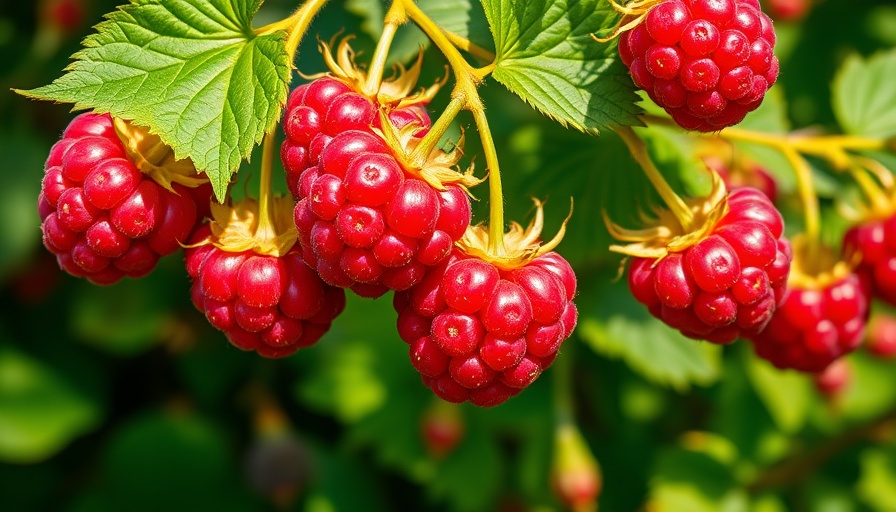
Exploring the Joy of Homegrown Raspberries
Summertime brings back joyful memories of outdoor adventures and delicious fruits, and among the most cherished are homegrown raspberries. These vibrant berries not only awaken the senses with their sweet-tart flavor but also signify the joy of garden-to-table moments. Whether recalling childhood summers spent picking fresh fruit from a relative's garden or exploring new recipes to utilize them, raspberries evoke nostalgia and delight.
Why Grow Raspberries in Your Backyard?
Most importantly, growing raspberries offers substantial benefits beyond just the delicious fruit. They are relatively easy to cultivate, making them an excellent choice for beginner gardeners. Raspberries can thrive in various climates, allowing almost any gardener to experience the joy of growing them. With options for everbearing and summer-bearing varieties, you can select the type that best fits your gardening style and local climate.
Best Raspberry Varieties to Consider
Raspberries come in several varieties, each with unique traits suited to different gardening needs. Here are some of the top options:
-
Summer Bearing: These varieties produce fruit once a year during peak summer months.
- Boyne (Zones 3-8): Known for its excellent flavor and hardiness.
- Cascade Delight (Zones 6-9): Sweet and perfect for fresh eating.
- Killarney (Zones 4-7): Offers a good yield of flavorful berries.
- Raspberry Shortcake (Zones 5-8): A compact plant ideal for container gardening.
- Royalty (Zones 4-7): Produces large, flavorful purple fruit.
-
Everbearing: These cultivars continue to produce fruit throughout the growing season.
- Anne (Zones 4-9): Has golden berries with a rich flavor.
- Dorman Red (Zones 5-9): A great option for continuous harvests.
- Fall Gold (Zones 4-9): Sweet yellow berries perfect for fresh eating.
- Heritage (Zones 4-8): Very productive and reliable.
- Joan J (Zones 4-8): A thornless variety, ideal for families.
Container Gardening: Perfect for Small Spaces
For those with limited garden space, container gardening offers an ideal solution. Varieties like Raspberry Shortcake thrive in pots, making it easy to grow your own raspberries even in urban settings. Utilizing decorative pots can enhance your gardening aesthetics while also allowing you to control soil quality and moisture levels, ensuring your plants flourish.
Essential Raspberry Plant Care Tips
Caring for your raspberry plants is crucial to ensure a bountiful harvest. Here are some key tips to keep in mind:
- Soil Quality: Raspberries prefer well-drained, nutrient-rich soil. Consider enriching your soil with organic compost to improve fertility.
- Watering: Regular watering is essential, especially during dry spells. A deeper watering once a week is generally more beneficial than frequent shallow watering.
- Pruning: Different varieties require varied levels of maintenance. Summer-bearing varieties often benefit from pruning out old canes after harvest, while everbearing types should be pruned for shape and productivity.
Harvesting and Beyond: Enjoying Your Raspberries
Ripe raspberries are a delightful treat, perfect for snacking or incorporating into various recipes. From smoothies to pies, the culinary options are endless. Additionally, you can consider canning or freezing surplus berries to enjoy year-round. Engaging in DIY gardening projects can foster a sense of accomplishment and promote sustainable living, making every step from planting to eating rewarding.
Conclusion
Now that you have the insights to choose and care for your raspberry plants, it's time to embark on your gardening journey! Whether you're planting a simple patch or creating a lavish fruit garden, raspberries can enhance your outdoor space and enrich your lifestyle.
 Add Row
Add Row  Add
Add 




Write A Comment